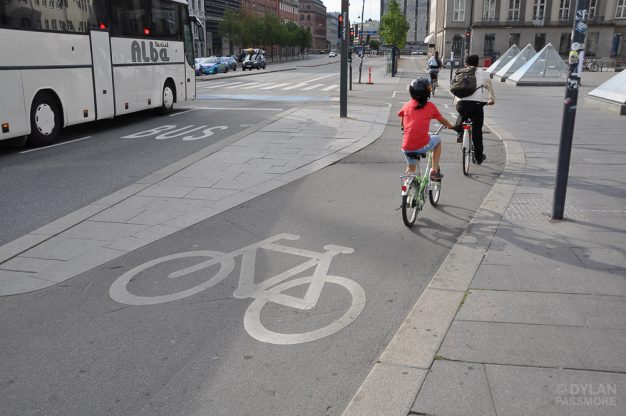
UNICEF: Netherlands heads list of top ‘wealthy’ countries for children – but problems still persist worldwide
The Netherlands, Denmark, Norway rank as the top three ‘wealthy’ children based on their health, well-being and education, according to childrens’ charity UNICEF.
But on the flip side there is also the reality that suicide, unhappiness, obesity and poor social and academic skills have become a common feature amongst children living in these and other high-income countries.
The charity’s latest report, Worlds of Influence: Understanding what shapes child well-being in rich countries, uses comparable data to rank European Union (EU) and Organisation for Economic Co-operation and Development (OECD) countries on childhood.
Put together using pre-COVID-19 information, the report has a league table based on childrens’ mental and physical health and academic and social skillsets. Based on these key indicators, the Netherlands, Norway and Denmark were the top three countries. The bottom three, in ascending order, were Chile, Bulgaria and the USA.
‘More must be done to provide children with a safe, happy childhood’
It’s the latest part of UNICEF’s Report Card Series, first set up 20 years ago, and published by Innocenti, UNICEF’s Office of Research. Gunilla Olson, Director of UNICEF Innocenti, said; “Many of the world’s richest countries – which have the resources they need to provide good childhoods for all – are failing children.
“Unless governments take rapid and decisive action to protect child wellbeing as part of their pandemic responses, we can continue to expect soaring child poverty rates, deteriorating mental and physical health, and a deepening skill divide among children. COVID-19 related support for families and children are woefully inadequate. More must be done to provide children with a safe and happy childhood – now.”

UNICEF’s key findings include:
- Mental health: In most countries, less than four-fifths of children report being satisfied with their lives. Turkey has the lowest rate of life satisfaction at 53 per cent, followed by Japan and the United Kingdom. Children who have less supportive families and those who are bullied have significantly poorer mental health. Lithuania has the highest rate of adolescent suicide – a leading cause of death among 15-19-year olds in rich countries – followed by New Zealand and Estonia
- Physical health: Obesity and overweight rates among children have increased in recent years. Around 1 in 3 children across all countries are either obese or overweight, with rates in Southern Europe also sharply increasing. In more than a quarter of rich countries child mortality is still above 1 per 1,000.
- Skills: On average 40 per cent of children across all OECD and EU countries do not have basic reading and mathematics skills by age 15. Children in Bulgaria, Romania and Chile are the least proficient in these skills. Estonia, Ireland and Finland the most proficient. In most countries, at least 1 in 5 children lack confidence in their social skills to make new friends. Children in Chile, Japan and Iceland are the least confident in this area.
‘Important gains at risk of falling back due to COVID-19’
The report also contains data on clear areas of progress in child well-being. On average, 95 per cent of pre-school aged children are now enrolled in organised learning programmes, and the number of young people aged 15-19 not in education, employment or training has declined in 30 out of 37 countries. Yet, these important gains are at risk of falling back due to the impact of COVID-19.
Countries are also ranked based on their policies that support child well-being and other factors including the economy, society and environment. Norway, Iceland and Finland have the highest-ranking policies and context to support child well-being. On average, countries spend less than three per cent of their GDP on family and child policies.

Due to the COVID-19 outbreak, in the first half of 2020 most of the countries covered in the report kept schools closed for more than 100 days while strict stay-at-home policies were also implemented. The report notes that loss of family members and friends, anxiety, stay-at-home restrictions, lack of support, school closures, the balancing of work and family life, poor access to healthcare, combined with the economic loss caused by the pandemic are catastrophic for children’s wellbeing, affecting their mental and physical health, and their development.
UNICEF: Strengthen efforts to protect children from disease
On the basis of the report and these recent developments UNICEF is calling for the following steps to protect and improve child wellbeing:
- Take decisive action to reduce income inequality and poverty and ensure that all children have access to the resources they need.
- Rapidly address the serious gap in mental health services for children and adolescents.
- Expand family-friendly policies to improve work-family balance, especially access to high-quality, flexible and affordable early-years childcare.
- Strengthen efforts to protect children from preventable diseases, including reversing recent falls in measles immunization.
- Improve COVID-19 policies that support families with children and ensure budgets that support child well-being are protected entirely from austerity measures.
Before the COVID-19 outbreak the average relative child poverty rate across the 41 countries was 20 per cent. With GDP expected to fall over a two-year period in almost all of these countries, unless governments take immediate remedial actions child poverty will rise.
“As the economic, educational and social fallout of the pandemic continues to take hold, without concerted effort, there will be a worsening, devastating impact on the well-being of today’s children, their families and the societies they live in,” said Olsson. “But these risks do not have to become the reality, if governments take decisive action now to protect children’s well-being.”
Click here to access the full report.




